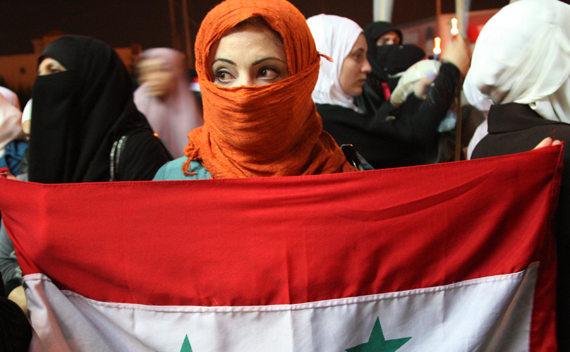No Profile in Courage: Syria, BRICS, and the UNSC
More on:

On Tuesday the United States and Europe sought to pass a UN Security Council (UNSC) Resolution to condemn Syrian President Bashar al-Assad’s brutal crackdown on protestors, which has killed 2,700 civilians since March, but the measure was struck down by Chinese and Russian vetoes.
The double-veto was a return to form for Russia and China. Both have established a longstanding pattern of blocking Security Council action against thuggish governments committing gross human rights abuses against their citizens. The two countries did the same in July 2008, vetoing proposed UN sanctions on Zimbabwe, and in January 2007, blocking a resolution demanding that the Burmese junta halt military attacks, end human rights abuses and release political prisoners. By vetoing even a watered down resolution on Syria—in which the word “sanctions” had actually been excised by the sponsors—Moscow and Beijing sent a clear signal that the experience of Libya, where their abstentions had permitted a resolution authorizing coercive action, would not be repeated.
In defending their country’s actions, Russian and Chinese ambassadors Vitaly Churkin and Li Bandong avowed that they too wanted to see a swift end to violence, but that sanctions—or even their implied threat—were counterproductive. They contended that “confrontation” would only exacerbate the prospect of civil war, rather than lead the opposition to sit down with the regime and negotiate a peaceful reform path. They did not include precisely how the Syrian opposition should persuade the murderous Assad regime to enter such talks. The truth, as frustrated U.S. envoy to the UN Susan E. Rice declared, was that the vetoing powers had cast their lot with the “brutal regime” in Damascus, and against Syrian citizens “yearning for liberty and human rights.”
If Russian and Chinese vetoes were predictable, the abstentions among the UNSC’s ten elected members were also telling. Lebanon, given its complex internal political makeup and vassalage to Syria, understandably stood on the sidelines. More disappointing, but sadly predictable, were the decisions by India, Brazil and South Africa to abdicate responsibility. All three countries are UN Security Council aspirants. U.S. officials and outside experts had hoped that their tenure as elected members would serve as their audition for prime time. Alas, their underwhelming performance has been far from encouraging, as Rice herself recently noted. Far from profiles in courage, the three developing country democracies joined their fellow BRICS, Russia and China, first to water down and then to oppose the resolution on the grounds that it might be used as a pretext for invading Syria. The United States and European UNSC members Britain, France, Germany and Portugal had spearheaded the resolution, calling for an immediate arms embargo and other sanctions on the Assad regime.
Thanks to opposition from the BRICS, the final text of the resolution was severely diluted. While condemning “the grave and systematic human rights violations and the use of force against civilians by the Syrian authorities,” the resolution did not impose an arms embargo. It simply demanded an immediate end to violence, support for fundamental freedoms, a lifting of media restrictions, and unhindered access for human rights investigators. Though the resolution promised a UNSC review of Syrian compliance in thirty days’ time and consideration of diplomatic or military sanctions, it did not remotely mirror the Libyan authorization of measures to protect civilians. Its failure is a sad example of the failure of the world’s large emerging democracies to live up to their domestic values and assume the responsibilities of power.
More on:
 Online Store
Online Store